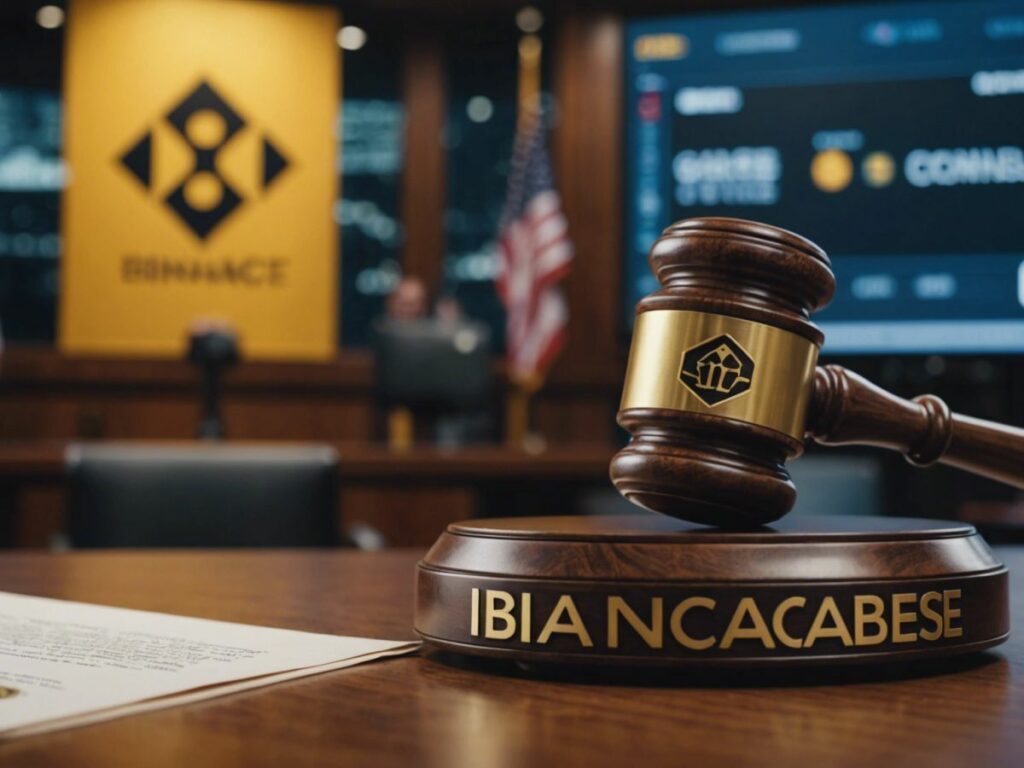In 2023, the U.S. Securities and Exchange Commission (SEC) initiated lawsuits against the world’s three largest crypto exchanges – Binance, Coinbase, and Kraken – marking the beginning of a stringent regulatory era for the previously unrestrained crypto industry. These legal actions have significant implications for the future of cryptocurrencies and the exchanges that trade them.
Key Takeaways
- The SEC has filed lawsuits against Binance, Coinbase, and Kraken, accusing them of various regulatory violations.
- The lawsuits could transform the crypto market by asserting the SEC’s jurisdiction over the industry.
- Major cryptocurrencies like Solana (SOL), Cardano (ADA), and Polygon (MATIC) have been labeled as securities by the SEC.
- The market response has been mixed, with some cryptocurrencies experiencing sell-offs while others, like Bitcoin, have rebounded.
SEC vs. Binance: Accusations and Market Impact
On June 5, 2023, the SEC filed a lawsuit against Binance, accusing the exchange of several violations, including running an unregistered exchange, selling Binance-owned cryptos BNB and BUSD, and using customer funds for its own interests. The allegations are severe and have drawn comparisons to the now-defunct FTX exchange.
As of late November 2023, the lawsuit remains unresolved. The SEC is investigating whether Binance and its founder, Changpeng Zhao (CZ), had a “backdoor” to control assets on the Binance.US platform. Binance has responded by filing a motion to dismiss the lawsuit. The case is expected to extend into 2024, with Binance agreeing to pay a $4.3 billion fine to settle charges from other U.S. regulatory bodies.
SEC vs. Kraken: Similar Complaints
On November 20, 2023, the SEC filed a complaint against Kraken, accusing it of operating as an unregistered securities exchange, broker, dealer, and clearing agency. The SEC also alleged that Kraken commingled customer funds for operating expenses. Kraken has denied the charges and intends to defend itself in court.
SEC vs. Coinbase: Compliance Issues
A day after the Binance lawsuit, the SEC charged Coinbase with operating as an unregistered securities exchange, broker, and clearing agency. The SEC also took issue with Coinbase’s staking-as-a-service program and its marketing campaigns. Coinbase has responded by attempting to register some of its business with the SEC, but claims the regulator has been uncooperative. The lawsuit is also expected to extend into 2024.
Cryptocurrencies Identified as Securities
The SEC has labeled several cryptocurrencies as securities in its lawsuits against Binance and Coinbase. Here is a list of some of the major cryptocurrencies identified:
- Binance vs. SEC lawsuit: Solana (SOL), Cardano (ADA), Polygon (MATIC), Filecoin (FIL), Cosmos (ATOM), Sandbox (SAND), Decentraland (MANA), Algorand (ALGO), Axie Infinity (AXS), Coti (COTI)
- Coinbase vs. SEC lawsuit: Solana (SOL), Cardano (ADA), Polygon (MATIC), Filecoin (FIL), Sandbox (SAND), Axie Infinity (AXS), Chilliz (CHZ), Flow (FLOW), Internet Computer (ICP), Near (NEAR), Voyager (VGX), Dash (DASH), Nexo (NEXO)
Market Reactions
Despite the lawsuits, the cryptocurrency market has shown resilience. Bitcoin (BTC) and Ether (ETH) rebounded quickly from initial sell-offs. However, cryptocurrencies identified as securities by the SEC, such as BNB, ADA, and SOL, experienced selling pressure. Data firm Nansen reported significant withdrawals from Binance following the SEC lawsuit.
Future of the Crypto Industry
The lawsuits signify a critical juncture for the crypto industry. Experts predict that U.S. centralized exchanges may only list Bitcoin and Ether in the future, while international exchanges could list tokens not tradable in the U.S. The industry is also lobbying for cryptocurrencies to be regulated by the U.S. commodities regulator CFTC instead of the SEC.
Understanding the SEC’s Concerns
The SEC aims to regulate cryptocurrencies similarly to the stock market, ensuring that crypto companies provide truthful information and protect investors. However, the lack of specific regulations for cryptocurrencies has led to legal challenges and uncertainty.
Conclusion: Inevitable Regulations
Cryptocurrency regulation is inevitable, and the ongoing legal actions in the U.S. could lead to clearer and more robust regulations. Unlike China’s abrupt ban on crypto activities, the U.S. approach may offer the industry a chance to adapt and emerge stronger.
What Is the U.S. SEC?
The U.S. SEC was established in 1934 to restore public confidence in the stock market after the 1929 crash. It ensures that companies provide truthful information and regulates brokers, dealers, and exchanges.
What Is Binance?
Binance is the world’s largest crypto exchange, founded by Changpeng Zhao (CZ). It operates as Binance.US in the U.S. and has its own cryptocurrency, BNB.
What Is Coinbase?
Coinbase is a well-known crypto exchange founded in 2012 by Brian Armstrong. It is the largest crypto exchange by trade volume in the U.S. and plans to launch a blockchain network called Base.
What Is Kraken?
Kraken is one of the oldest crypto exchanges, founded in 2011. It offers over 200 cryptocurrencies and supports transactions in eight fiat currencies.
Sources
- SEC vs Binance, Coinbase, Kraken Lawsuits Usher Tough New Era, Techopedia.
- Binance, Coinbase head to court; the SEC labels 67 crypto-securities, Cointelegraph.
- US tightens crackdown on crypto with lawsuits against Coinbase, Binance | Reuters, Reuters.
- Full List of Cryptos Named Securities in SEC Lawsuits, BeInCrypto.
